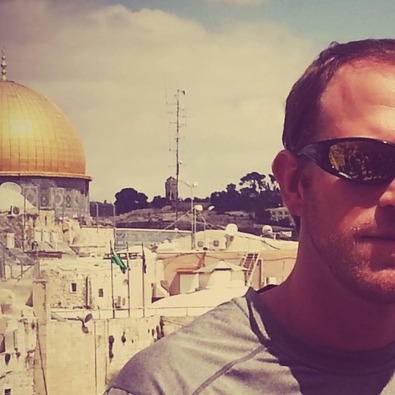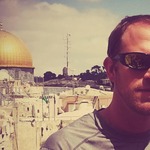
When it comes to fighting terrorism, the Israelis have it down. This became clear to me when I traveled to the West Bank to train at a counter-terrorism academy staffed by members of the Israeli Defense Forces (IDF).
The training was intense, dynamic, and yes - fun. Not only did I get to train with the world's top security experts, I also gained some insight into the changing nature of terrorism and how the IDF were adapting to fight it. The Israeli perspective offers those of us in the West something to think about as we struggle with our own battle against terrorism:
The Stakes Are Higher Than Ever: Groups like Hizbollah and Hamas are better trained and organized than they were 30 years ago. Their capacity to conduct attacks with increasing sophistication and lethality makes them more dangerous and harder to fight. In decades past, Israelis worried about suicide bombings, kidnappings, and hijackings. Those threats still exist, but now the Israelis must contend with rocket attacks; a network of underground tunnels both in Gaza and the north; and hostile regimes like Iran seeking nuclear weapons. Add it all together and you get an endless list of doomsday scenarios.
Sometimes There Are No Solutions, Just Decisions: I think we in the West fully appreciate the protracted nature of asymmetrical warfare. We much prefer conventional operations with clearly drawn battle lines, an enemy in uniform, and a capitol we can bomb into submission. We're learning the hard way that fighting terrorism doesn't lend itself well to this approach. Although efforts to disrupt Al-Qaeda's network were successful, new problems have surfaced. Terror groups, which once operated in organized hierarchal structures, are opting for more decentralized models. The lack of centralized leadership and planning makes these groups harder to monitor and track. Moreover, with the meteoric rise of groups like ISIS, who have seized large swaths of territory in Iraq and Syria after the US draw down, has left many wondering whether America's policies are yielding any lasting results. The Israelis I spent time with are under no such delusions. They understand the conflict is generational. There are no final victory celebrations in the fight against terror. Each day presents its own threats and opportunities. As one IDF colonel told me, "It will never end. You have to fight them everyday. In the end, you try to win more times than you lose."
Everyone Plays a Security Role: Israelis are very proactive when it comes to security. Everyone gets involved. "Our children know at an early age, if they see a bag left unattended on the playground, they immediately tell an adult. Everyone pulls back while the authorities are notified."
It reminds me of the often repeated phrase we hear in the States, "If you see something, say something." The question remains, is this enough? Should we be doing more to encourage the public to be more security minded? If so, what exactly does that look like? It's something to think about.
Got a comment or story? Let us hear it.
Mark Booher is a former soldier, prosecuting attorney, and certified close protection specialist. He has trained hundreds of military, law enforcement, and civilian personnel on the subject of intelligence and security operations.

